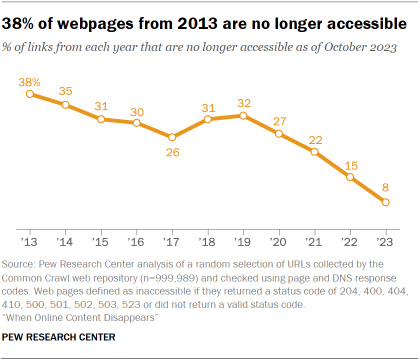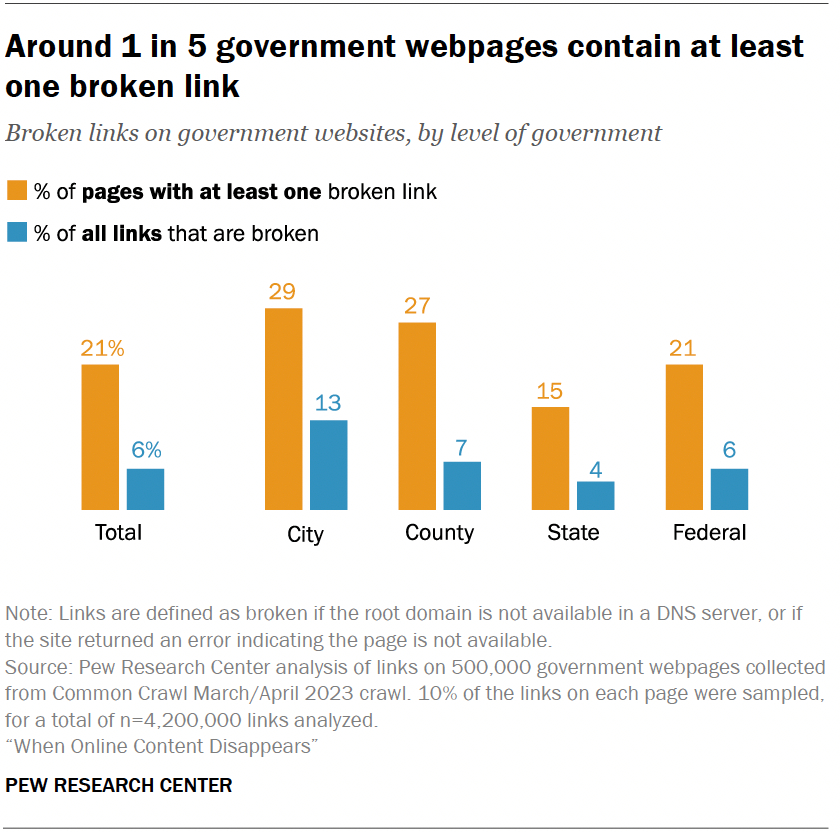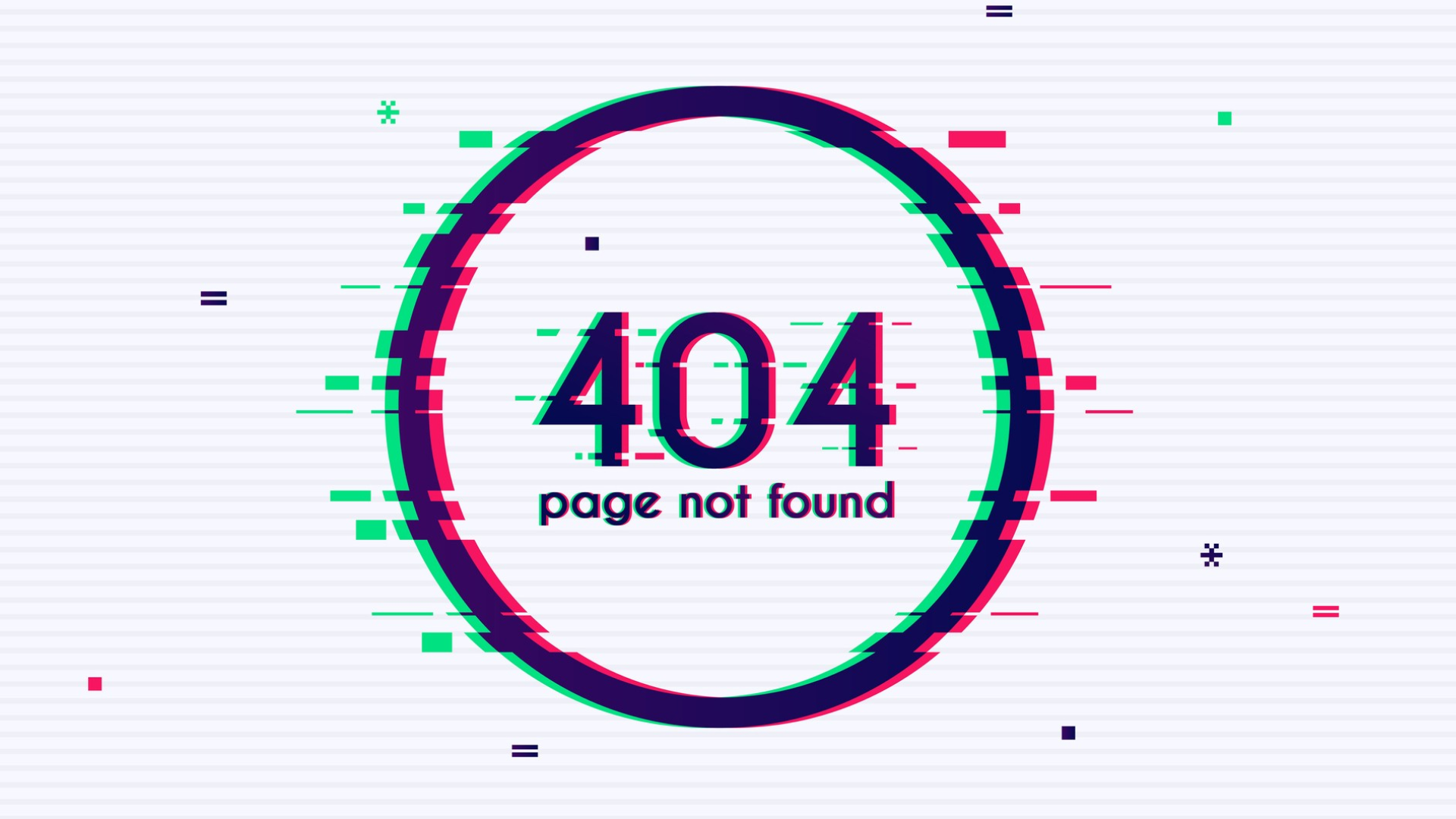The common adage that “the internet lasts forever” is being challenged by a recent study from the Pew Research Center, which reveals that a significant portion of online content disappears over time. This phenomenon, termed “digital decay,” indicates that much of what is uploaded to the internet has a fleeting lifespan, contradicting the long-held belief in its permanence.
We’ve all encountered the dreaded 404 error, searching for old forums or handy websites only to find dead links. Despite the belief that everything on the internet lasts forever, new research from Pew Research Center shows otherwise. By October 2023, 38% of web pages from 2013 were inaccessible. Nearly 23% of news articles and 21% of US government pages contain at least one dead link. Wikipedia is also affected, with 54% of pages having dead references. Social media isn’t immune either; nearly a fifth of Twitter posts disappear within months, particularly posts in Turkish (49%) and Arabic (42%).




Disappearing Web Pages
The Pew Research Center’s study provides a detailed analysis of the lifespan of web content over a decade, from 2013 to 2023. The findings are striking: 25% of all web pages that existed during this period are now unreachable. The trend is more pronounced for older content, with 38% of web pages from 2013 no longer available, and even more recent content is not immune, with 8% of pages from 2023 already gone.
The disappearance of these pages is mostly due to individual deletions or removals from otherwise functional websites, rather than the entire site being taken down. This selective deletion leads to a growing number of broken links across the internet, which is particularly noticeable in the realms of news and government websites. According to the study, 23% of news-related sites and 21% of government pages contain at least one broken link.
The Impact on Information Accessibility
The impact of digital decay extends to widely used resources such as Wikipedia. The study found that 11% of all reference links on Wikipedia are now inaccessible, and 54% of all Wikipedia pages have at least one reference link pointing to a nonexistent webpage. This loss of linked content significantly affects the reliability and completeness of online information.
Social Media and Digital Decay
Social media platforms are also affected by digital decay. Pew Research Center’s examination of nearly 5 million posts on X (formerly Twitter) from March 8 to April 27, 2023, revealed that nearly one in five posts had vanished by June 15. In 60% of these cases, the accounts that posted the tweets were either made private, suspended, or deleted. The remaining 40% of disappeared tweets were individually removed while the accounts remained active.
Interestingly, the study noted that not all deleted tweets are permanently lost. About 6% of tweets that had initially disappeared reappeared later, likely due to accounts transitioning from private to public status or being reinstated after suspension.
Efforts to Combat Digital Decay
Various initiatives are underway to combat the effects of digital decay. For instance, New York State has been proactive in addressing broken links on government websites. Tonya Webster, the state’s Chief Customer Experience Officer, mentioned that New York is implementing “voice of the customer” surveys to identify and fix broken links, ensuring that government websites remain functional and user-friendly.
Additionally, New York is redesigning several outdated websites and deploying a common set of standards and guidelines to maintain a consistent and up-to-date digital presence across state agencies. Governor Kathy Hochul highlighted these efforts in her 2024 State of the State address, emphasizing the importance of improving web experiences for government pages.
The Role of Digital Archivists
Communities of digital archivists have emerged to preserve disappearing online content. Websites like the Internet Archive offer a vital resource for researchers, journalists, and academics looking to access websites that have been deleted from their original locations. Projects like the Eternal Access Project are also dedicated to preserving digital copies of “banned, threatened, and at-risk books” in secure locations like the Norwegian Arctic.
The Pew Research Center’s study underscores the transient nature of online content, challenging the notion that the internet is a permanent archive. While the internet remains a powerful tool for information dissemination, the phenomenon of digital decay highlights the importance of proactive measures to preserve valuable content. As web pages, tweets, and other digital materials continue to disappear, the efforts of digital archivists and initiatives to improve the stability of online resources become increasingly critical. Understanding and addressing digital decay is essential to maintaining the integrity and accessibility of information in the digital age.




